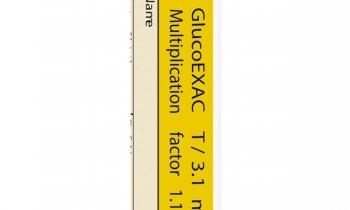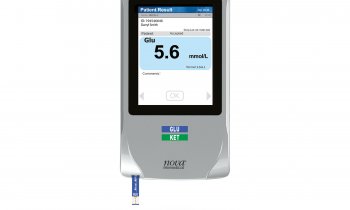Deadly disease, dismal summary
Rostislav Kuklik reports
Recently, the prevalence of diabetes mellitus in the Czech Republic reached 7-8% (783,321 diabetics were treated last year – 419,362 females and 363,959 males) but this figure leaps to 25-30% for diabetes related hospitalisations.
In addition, further on, last year's statistical reports read that less than one fourth of the patients (188,000) were solely on diet, chronic complications were seen in 28 % of these patients, 21,700 people with reported diabetes died (six of them younger than 19 years) and, for 1,967 people the cause of death was stated as ‘diabetes’.
Interestingly, diabetics under aged 19 years constitute 0.3% of all patients -- 1,909 of them were registered. Also, 221,000 diabetic complications were reported – most typical, such as chronic kidney impairment, vision deterioration or loss, atherosclerotic changes, infections and neuropathies.
Healthcare provision was centred on diabetology ambulances (treating 84% of all diabetics) and private practices (treating 16% of all diabetics). All-in-all, over 2.1 million medical examinations and/or treatments were performed in 501 ambulances countrywide.
Public efforts, for free
For example, back in April this year, Czech Diabetic Association, in partnership with Abbott Diabetes Care division, launched the second round of free public assessments of glycaemia and cholesterolaemia. Under the slogan Diabetes, measure your risks! the event was quite a success; over and eight-week period, almost three thousand people had their blood glucose and cholesterol levels checked in five Czech towns -- Prague, Brno, Plzeň, Liberec and České Budějovice.
Furthermore, blood pressure (BP) checks were offered to all volunteers as an important part of a complete physical examination that potential diabetic patients should have recorded in order to raise awareness of all crucial diagnostic parameters needed to identify cardiovascular disease and diabetes mellitus. The average age of those who wanted their BP and glycaemic/cholesterol levels checked was 56 years; two thirds of these were women. Hyperglycaemia was identified in 20%, hypercholesterolaemia in 32%, and hypertension in 40% of the volunteers -- numbers not critical but alarming.
Thousands of patients, hundreds of families
It is estimated that 15 to 20 thousand Czechs suffer monogenic diabetes mellitus. Motol teaching hospital, in cooperation with the paediatrics department of the 2nd Faculty of Medicine in Prague, is vigorously continuing its monogenic diabetes-related activities for children. The scientific project also known also as Monogenic diabetes – from genetics to treatment received co-funding from the ‘Norway Funds’ a year and a half ago, which helped considerably.
The above mentioned medical institutions are the first in the Czech Republic trying to test for monogenic diabetes in children and adolescents with hereditary diabetes, and flexibly adjust their treatment according to the results obtained. Motol deputy manager for EHP/Norway funding, Dr Vladimír Říha, underscored the importance of scientific research funding secured from abroad, and noted that medical care in EU member countries is equalising. So, a meaningful international cooperation is coming to life, hence project funding reached a not negligible €443,000, and it could boast that this is currently the only granted Czech project of its kind.
Motol teaching hospital teams have been running laboratory diagnostic tests for over two years and have truly succeeded in establishing routine genetic diagnoses of the mutations that put their bearers at risk of this disease. So far, 1,182 children and/or adolescents from 366 registered families and patients from 201 families have had their genetic diagnoses successfully set, and optimal treatment proposed.
Sources: The Czech Diabetes Association; Czech Diabetology Society; International Diabetes Federation; FN Motol, Norway Funds, Ústavu zdravotnických informací a statistiky (ÚZIS), and Abbott Diabetes Care division
07.09.2010










